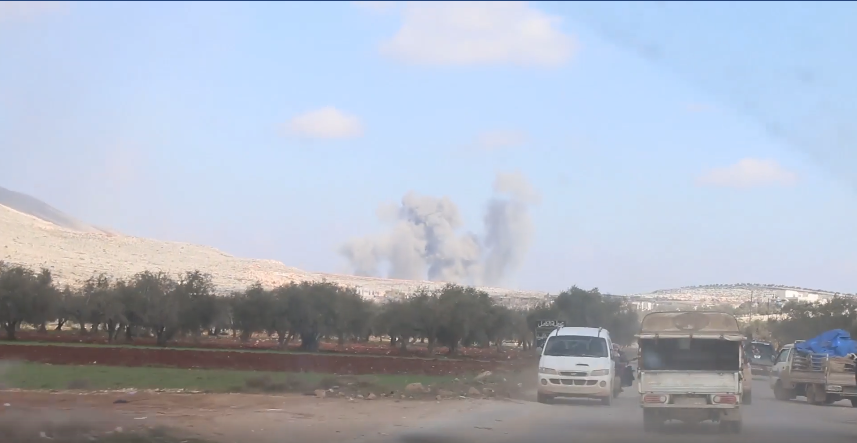In Syrian camp for women and children who left ISIS caliphate, a struggle even to register names (The Washington Post)
“Abandoned by their governments and under the care of a Kurdish-led force that does not want them, the women and children inside the al-Hol camp annex are among nearly 14,000 foreigners from more than 60 countries being held in northeastern Syria due to suspected Islamic State links. Some 30,000 Iraqis live in a separate, larger section of the camp. Inside the annex, some women still fly the Islamic State flag and impose its disciplinary measures.
Their futures were initially seen as a test of how their home nations would balance human rights responsibilities with security concerns. But as the months have worn on, their cases have slipped from the global political agenda.”
Russia holds key to UN Syria aid operation (The New Humanitarian)
“UN aid to Syria’s rebel-held northwest will come to a halt this month if Russia does not agree to a deal in the Security Council, potentially putting healthcare, food, and rudimentary shelter for millions of people in jeopardy.”
US troops 'secure' northeast Syria oil, as contamination from it imperils lives (Al-Monitor)
“Across the Kurdish-administered region, which is home to some 4 million people and sits on most of Syria’s contested oil, crude oil leaking from dilapidated pipelines and carcinogenic oil waste are contaminating rivers and streams. When the rivers flood, as they did most recently in April, they spread their poison over agricultural crops, just as thousands of rudimentary refineries belch their own toxic fumes into the air.
Dystopian images of scorched earth and blackened water have failed to make an impact.”
Syrian Filmmaker Speaks Out On Torture: 'I Was Holding This Pain For A Long Time' (NPR)
“It was a chilling description of torture in an infamous Syrian prison: ‘There were screams, they weren't normal,’ Syrian witness Feras Fayyad said in court. ‘I was very afraid.’
Fayyad, 35, an Oscar-nominated filmmaker, was the first witness to testify in a trial in Germany against a Syrian intelligence officer whom he alleges nearly killed him in a Damascus detention center in 2011.”
After 'reconciliation': Syria regime's silent crackdown (AFP)
The diasporic alienation of Syrian cinema
11 February 2020
A ‘missing piece’ in the debate: As Caesar sanctions go into effect, are ordinary Syrians protected?
18 June 2020
“Syrian army defector Salam had signed a surrender deal with the regime supposed to protect him, but after reporting for military service, he disappeared and months later was declared dead.
‘He went off and never came back,’ his elder brother told AFP.
Salam is one of a growing number of former rebel fighters who disappeared, died or suffered abuse at the hands of regime forces, despite signing so-called reconciliation deals in areas the government has recaptured.”
Syria harvest boom brings hope as hunger spikes (AFP)
“Heavy rains and reduced violence in parts of the country this year have led to a much improved harvest, one that farmers and officials hope will soften the blow of an economic crunch that has plunged millions into food insecurity.”
How Caesar will impact Syrian civil society (Al-Jumhuriya)
“Last month’s new US sanctions in Syria, commonly known as the Caesar Act, have sparked widespread discussion of their possible political, economic, and geostrategic ramifications. Less examined are the potential consequences for the groups and individuals working hardest to bring about a brighter future for the war-wracked country. Al-Jumhuriya asked five prominent Syrian civil society figures how they expected the Caesar Act to affect their work.”
Another Road for Syrian Poetry (Arablit, originally in Arabic on al-Jumhuriya)
“Revisiting the first two decades of the 20th century, when Syria was founded as a modern nation-state after the Ottoman occupation, we find a country emerging from a nascent rurality. This place had endured centuries of occupation, famines, wars, and corrupt ruling classes. These afflictions lent the very existence of culture a connotation of luxury.”







